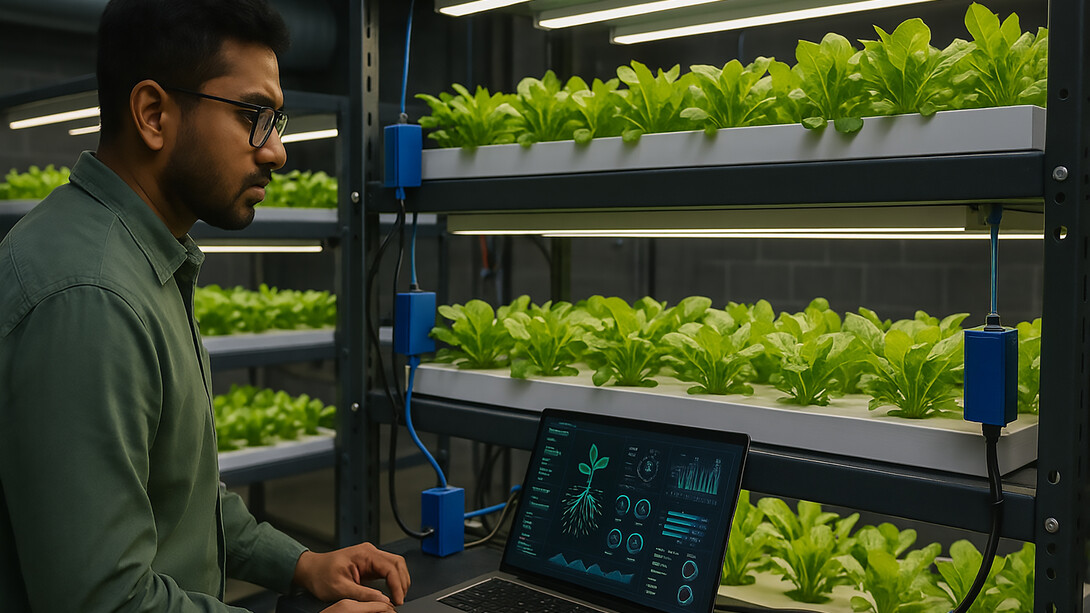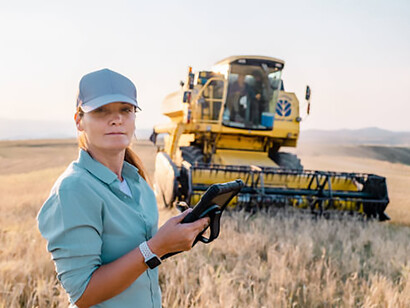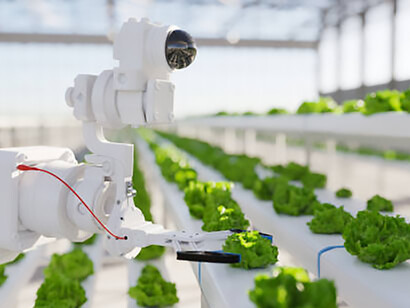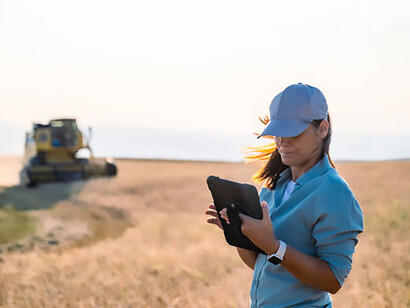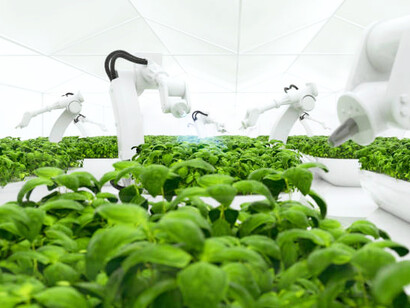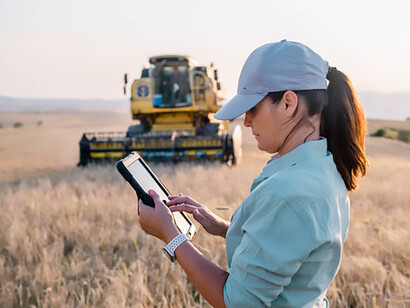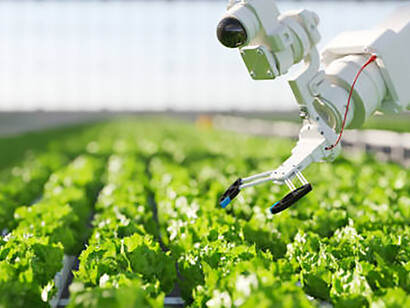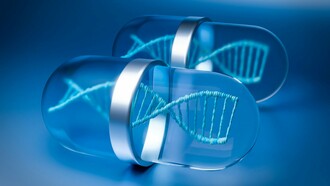As global population pressures rise and arable land continues to shrink, the urgency to revolutionize agriculture is more pronounced than ever. Traditional farming methods, while time-tested, are no longer sufficient to meet the food demands of an increasingly urbanized and climate-vulnerable world. In response, hydroponics—soilless agriculture that uses nutrient-rich water solutions—has gained significant traction. But the future belongs not just to hydroponics but to AI-powered hydroponic systems that are smart, adaptive, and scalable.
Different next-generation solutions have been engineered that blend the precision of artificial intelligence with the biological complexity of plants—creating a system designed not only for terrestrial sustainability but also for life-supporting agriculture in space.
AI-controlled hydroponics: merging intelligence with growth
Hydroponics has long offered a cleaner, faster, and more space-efficient way to grow crops. However, managing the environmental variables—temperature, pH levels, nutrient composition, humidity, and light—requires constant monitoring and adjustment. Human oversight alone, especially at scale, can be limiting.
The AI-controlled hydroponic systems solve this problem by incorporating:
Internet of Things (IoT) sensors, which continuously collect data on key environmental and biological indicators.
Machine learning algorithms, which process real-time data to adapt growth conditions for maximum efficiency.
Cloud-based dashboards, giving users full remote visibility and control over their plant systems from anywhere in the world.
These components work in harmony to create a dynamic growing environment, personalized to the specific needs of each plant species. For instance, leafy greens and fruiting plants require vastly different photoperiods and nutrient balances. This system recognizes these differences and auto-adjusts parameters to create ideal microclimates for each crop.
Key benefits of AI-powered hydroponic systems
Implementing artificial intelligence into hydroponic farming brings several transformative advantages:
-Optimal resource utilization: Up to 90% less water usage compared to soil-based farming.
Consistent crop quality: Reduced human error and optimized growth patterns.
Scalable and modular: Systems can be used in households, vertical farms, or industrial research facilities.
Predictive analytics: Early detection of diseases or nutrient imbalances before visible symptoms appear.
24/7 automated monitoring: Ensures crops grow under ideal conditions, even during off-hours.
The result is not just higher productivity but also a significant reduction in the ecological footprint of farming.
Industrial biotechnology: expanding what plants can do
What truly sets this platform apart is the seamless integration of industrial biotechnology within the hydroponic system. This is not just about growing plants more efficiently—it's about expanding what plants can do.
By supporting genetically modified and genome-edited plants, our system becomes a living laboratory for researchers and biotechnologists working on:
Nutritional enhancement of staple crops.
Plant-based pharmaceutical production.
Climate-resilient plant development.
Biofortification for malnourished populations.
The hydroponic environment offers sterile, controlled conditions ideal for precision genetic experimentation. This system supports standardized research protocols while also offering flexibility for innovation. Scientists can simulate stress conditions (like drought or high salinity) to observe gene expression patterns, enabling the development of more resilient plant varieties.
Moreover, this platform is compatible with molecular biology tools such as CRISPR, RNA interference, and gene expression assays, making it a comprehensive solution for modern agricultural biotechnology.
Pioneering growth in space: hydroponics for microgravity research
While this technology addresses pressing challenges on Earth, it also holds immense promise for space research. One of the critical hurdles of long-term space exploration is sustainable food production in microgravity environments. With no soil, limited water, and variable sunlight, traditional agriculture is virtually impossible in space.
These hydroponic systems offer a viable alternative—compact, self-sustaining units that can operate under zero-gravity conditions. Designed in collaboration with plant biologists and aerospace engineers, these systems help answer vital questions such as
How do plants respond to growth in microgravity?
Can genetic modifications improve plant productivity in extreme environments?
What role does root architecture play in nutrient absorption without gravity?
How can closed-loop systems recycle air, water, and nutrients aboard spacecraft?
This kind of platform has been considered for use in research projects aimed at supporting long-duration astronaut missions, such as lunar habitats or missions to Mars. In these missions, plant life isn’t just about nutrition; it’s about psychological well-being, oxygen regeneration, and waste recycling—all critical factors for survival in space.
By simulating and monitoring plant responses in microgravity-like conditions on Earth, people prepare for a future where space farming becomes a key element of human colonization beyond Earth.
A look toward the future: smart, sustainable, and scalable
At the intersection of agriculture, AI, and biotechnology, these hydroponics systems stand as a testament to what’s possible when disciplines converge to solve real-world problems. From feeding urban populations to supporting interplanetary missions, the versatility of the platform makes it a crucial innovation in both terrestrial and extraterrestrial sustainability.
Summary of key features:
AI-driven real-time environmental control.
Advanced IoT monitoring and cloud-based reporting.
Support for genetic plant research and biopharmaceutical development.
Scalable for home use, industrial application, or space research.
Predictive diagnostics for disease and growth anomalies.
Agriculture is being rewritten, not just with better tools, but with smarter systems. Whether you’re a researcher in plant genomics, a vertical farmer in the city, or a mission planner for life in outer space—the AI-controlled hydroponics technology is designed for your vision.
Looking ahead: the future of smart agriculture
As the world increasingly turns toward sustainable food production and space exploration, numerous companies are entering the field of smart farming and extraterrestrial research. Yet, ReVora distinguishes itself through a truly visionary approach—merging AI-powered hydroponics, industrial biotechnology, and real-world applications in space-oriented agriculture. Uniquely, members of ReVora’s top management are not only business and scientific leaders but have also been selected as astronaut candidates for an upcoming mission planned for 2029. While others are still conceptualizing, ReVora’s extraordinary alignment of visionary leadership and lived research experience places the company at the forefront—already testing solutions designed not only to optimize sustainable food systems on Earth but also to support life beyond our planet.
